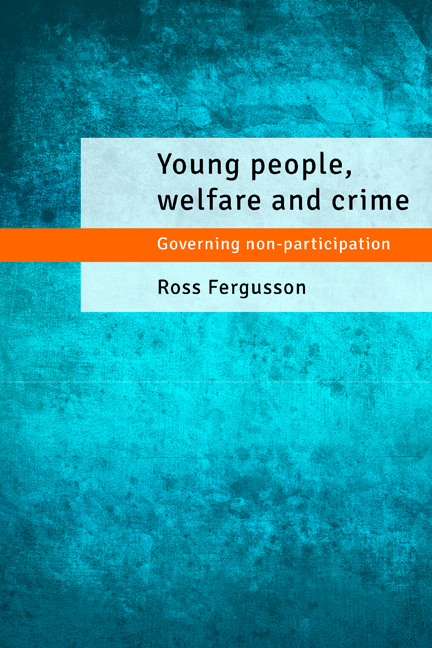Book contents
- Frontmatter
- Dedication
- Contents
- Detailed contents
- List of figures and tables
- List of abbreviations
- About the author
- Acknowledgements
- Part One The crisis of non-participation
- Part Two Work, welfare and crime: research and policy
- Part Three Theorising non-participation
- Part Four Criminalising non-participation
- References
- Copyright material
- Index
Interlude: Interpretive review
Published online by Cambridge University Press: 01 September 2022
- Frontmatter
- Dedication
- Contents
- Detailed contents
- List of figures and tables
- List of abbreviations
- About the author
- Acknowledgements
- Part One The crisis of non-participation
- Part Two Work, welfare and crime: research and policy
- Part Three Theorising non-participation
- Part Four Criminalising non-participation
- References
- Copyright material
- Index
Summary
The conclusions of the previous chapter indicate a need to pursue one of two divergent paths for refining analysis and advancing thinking in this field of social and criminal justice policy. The first would require a major intensification of empirical work. It would mean taking seriously the critique set out in Chapters Four and Five of the dominant methodologies that have been in use to date. A major shift in methods and research design would be required. Such a shift may be attainable, but would be exceptionally demanding. The risk that it would do no more than add a stratum of understanding to the inconclusive research to date would haunt its advance.
The second path would be to give precedence to a focused, dedicated theorisation of the relationship between non-participation, welfare and crime among young people, of a kind that has not yet been attempted. It would be essential to explore interpretations of the relationship that are largely beyond the reach of existing empirical research. Such an approach would help redress the historical imbalance that has greatly favoured positivistic empirical research over theoretical research in this field. As what follows proposes, such an approach also has important potential to re-steer empirical work in ways that might offer good prospects for reinterpreting it. This approach also has potential to divert policy knowledge and political priorities away from preoccupations with the alleged criminality of non-participants, in favour of developing a broader understanding of the causes and consequences of mass non-participation.
An exploration of what it might mean to theorise non-participation and crime within broader horizons is the subject of the next three chapters. By way of preparation, this interpretive review of Chapters Two to Five draws together their key arguments. Throughout those chapters, the distinctions between exogenous factors of analysis and nomothetic levels of analysis on one side, and endogenous factors of analysis and idiographic levels of analysis on the other have been used to highlight some of the paradigmatically fundamental origins of the conflicted positions and approaches described. This review continues to draw on these distinctions, as a constant reference point that identifies and frames key axes of contestation – many of which also characterise much theorisation in this field.
- Type
- Chapter
- Information
- Young People, Welfare and CrimeGoverning Non-Participation, pp. 137 - 142Publisher: Bristol University PressPrint publication year: 2016



